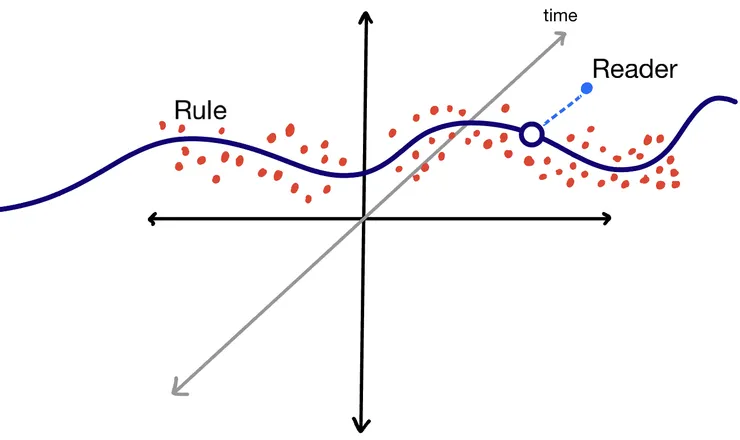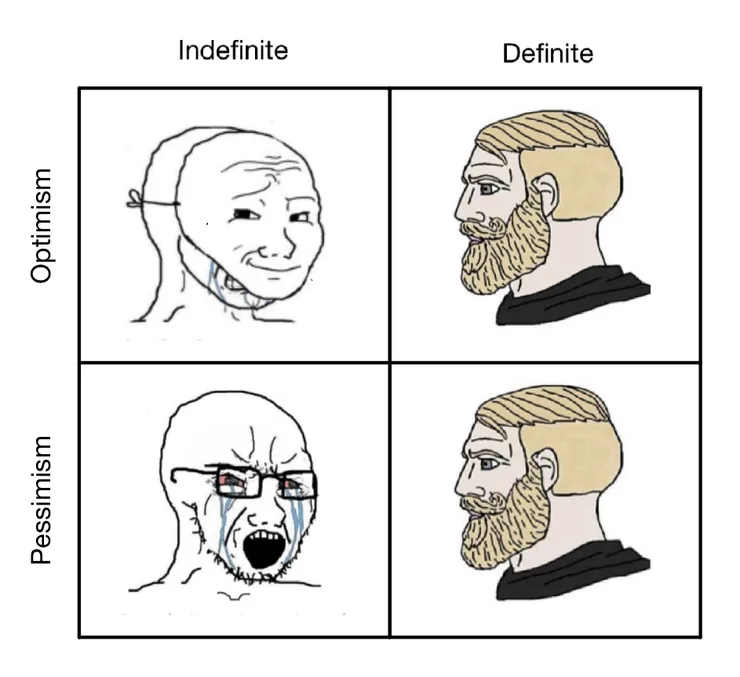N̶o̶t̶ ̶A̶n̶ Exception
The relationship between an author of a self-help book and its reader can be best described as complicated. Even if the author were to somehow capture the reader’s state of the heart on paper, the reader would think it belongs to anyone else but them. While every author hopes their work rules out no reader, every reader convinces themselves they are the one exception to the rule.
For example, if the reader is not part of the 15% of the US population that has started their own business, he conveniently convinces himself that he will eventually begin one in the future and therefore distances himself from the remaining 85%. If only 20% of venture-funded startup owners break even, the reader doesn’t see his potential reflected in the 80% that do not. If only 1% earn more than a million annually, he’d soon enough break away from the remaining 99% that do not anyway, he tells himself. If only 8% follow their dreams, he knows he will not be part of the remaining 92% any longer, so why not discount himself now? The reader becomes the cusp at which the author’s rule breaks.

Using a jump discontinuity to visualize how a reader might shift himself across time to try and become the exception to a rule
The rule can indeed be broken because the reader has one thing the author does not—the ability to edit. For a brief moment, an Anywhere Door opens for the reader to step into the future, outside their reality, and examine the possibility of being an exception. They can imagine being part of the 15% that starts a business, the 20% that breaks even, the 8% that follows their dreams, and the 1% that makes a million…But, it's just that… a possibility. The reader still remains a rule, so perfectly captured by a statistic. Dreaming isn't enough to break away from the author's capture, though. The reader must toil, suffer, and deviate from his current path.
The first urge for resisting this metamorphosis is reframing the problem as "us versus them" instead of "me versus me." It's hard to resist, given we don't even seem to be trying recently—perhaps a sign of the times. First, people fight the statistic. Then they fight the exceptions. Finally, they fight the rule. "Life's not easy, you know, being the rule," the reader exclaims. Of course not, but you know what's more challenging? Becoming an exception and staying one.
It begins with unlearning entitlement. Recall every time you saw a big car on the road, and your dad told you without missing a beat, "You'll have a car like that one day because you're special." You should think back on these words of encouragement cautiously. They were dangerous, were they not? Look around on the streets. How many Ferraris do you see? How many rich people do you see? How many successful ones? How many do you see living their dreams and following their passion? How many happy ones? Unless you live in posh suburbs, the answer is almost always none. Now look again. How many small, old cars do you see? How many people are living from paycheck to paycheck? How many of them are taking loans to pay their bills? How many are toiling away in jobs they don't even like? I'd hate to answer my question again, but the answer is one too many.
You see, all that encouragement gave us was a generation with a false sense of relief that we could become astronauts and rockstars (opens in a new tab). What it sneakily did, though, was, in curing us of self-doubt faster than we should have, it ripped out the gauges of our airplanes before we even took off. Instead of fuel gauges, we had falsehood running our engines. In place of an altimeter, we got an entitlement meter. And it was ticking. We ran off thinking, "We can be anything we want! It'll be easy!" So sure of winning, we entered the boxing rings with lowered guards and got knocked out. We gambled away every last dime to our names on risky bets and lost everything. We were so sure to win. "It will be easy," they said.

Should our fathers have knocked senses into our brains by telling us we’re incapable? Absolutely not. Indefinite pessimism is bad as indefinite optimism. There is a middle ground, however, between fostering a false sense of entitlement and the inevitability of failure, an inconvenient in-between of treading with reckless abandon and learned helplessness (opens in a new tab) called realism. You’re not born an exception, just a rule, but if, and only if, you work hard and smart, you can become an exception.
If you have to be a rule, be one in rebellion against itself, forever mutating to break away from its current state. Be anything but default. Be anywhere but stuck at the first epoch. Do anything but sit idle and be okay with stagnating. If the constant urge to evolve means you’re unhappy with who you’re right now, then, happily, be fuckin’ unhappy. Just don’t sell yourself short.
